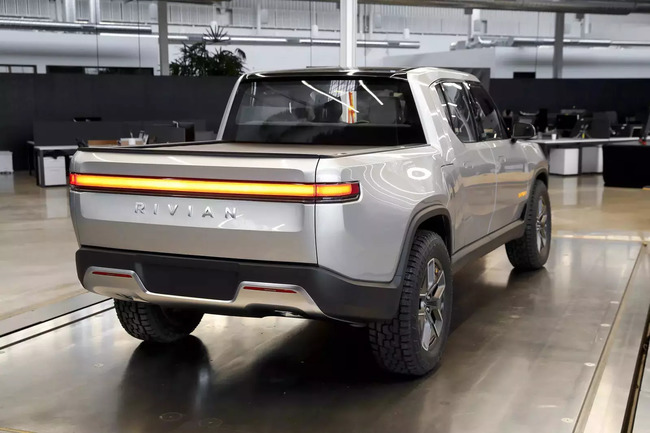Rivian and Clearloop are working together on a solar project that will pave the way for more impactful corporate renewable procurement.
Given the urgency with which we need to transition to more sustainable energy systems, the system-wide impacts matter. That’s why we’re being thoughtful from the very first steps on our path to carbon neutrality

Thursday, April 28, 2022 | Chimniii Desk
Rivian and Clearloop, based in Nashville, are teaming up to bring Rivian's first megawatt of renewable energy online in a unique way. Their strategy provides solar energy to a portion of the country where new renewable development can aid in system-wide carbon reductions.


Rivian aims to be carbon neutral in its own activities by 2028 – Scopes 1 and 2 as outlined by the Greenhouse Gas Protocol – and in Scope 3 categories by 2032. Scope 3 covers the entire value chain, from suppliers to charging stations. Every kilowatt hour Rivian owners drive will be matched with renewable energy purchases on an annual basis, whether vehicles are charged at home, at a Rivian charging network charger, or at a partner network charging site, according to the business.
The Paris Solar Farm - Puryear in Tennessee will be the first solar farm in Henry County, about 100 miles east of Nashville, in the Sun Belt. The initiative employs novel funding and siting strategies in order to get renewables onto more fossil-fueled grids, where they can displace more coal and natural gas.
"While corporations have played an important part in the growth of renewables, we've reached a stage where we need to modify our techniques in order to truly decarbonize the nation's whole grid," said Laura Zapata, co-founder and CEO of Clearloop. "Clearloop is launching a new solar finance method that prioritises carbon emissions over megawatt hours. Rivian's ability to go outside the box and try something new is a significant enabler."
Advertisement

Advertisement
Rivian committed upfront funding for one megawatt of the 6.75-megawatt project, which would provide electricity for Rivian Waypoints chargers planned for Tennessee state parks as well as other sustainable energy commitments in the area. Rivian's investment aided the overall project's start-up and showed regional business demand for renewable energy, according to Clearloop officials.
The majority of new corporate renewable projects have been driven by power purchase agreements, which are long-term contracts for a specified amount of renewable power and associated environmental qualities at a predetermined price. While they've had an impact on bringing more renewable energy online, they're scaling up quickly in areas with liquid wholesale electricity markets or retail choice, which is where the majority of firms have concentrated their investments.This has resulted in an unequal distribution of solar and wind energy, with some areas, such as California and Texas, being well-served while others, particularly in the Southeast and Mountain West, continue to rely on fewer renewables and more fossil fuels. As a result, not everyone in the country has equal access to clean energy. For example, Tennessee's grid is powered by 0.4 percent solar, whereas California's grid is powered by roughly 16 percent solar.
Advertisement

Advertisement
According to WattTime, a non-profit that measures the carbon emissions that renewables eliminate, a megawatt hour of power in Tennessee produces roughly 32% more carbon than a megawatt hour in Northern California. And each new renewable project that is built in an area like Northern California rather than Tennessee widens the gap, resulting in smaller system-wide carbon reductions.
“The carbon consequences go beyond state lines,” said Andrew Peterman, director of renewable energy at Rivian. “Given the urgency with which we need to transition to more sustainable energy systems, the system-wide impacts matter. That’s why we’re being thoughtful from the very first steps on our path to carbon neutrality.”
Advertisement
In addition to Rivian and Clearloop's partnership, the Paris Solar Farm – Puryear is made possible by a recent Tennessee Valley Authority (TVA) provision that allows municipal electricity providers in TVA's authority to source 5% of their power from renewables developed by businesses other than TVA. Paris BPU, which serves Henry County, is one of the first to make use of the provision. The solar farm enables the utility to offer its first green tariff, allowing local businesses to purchase the environmental benefits of the new solar and satisfy their own renewable energy objectives in their own backyards.
"We're seeing a lot of interest from local businesses, and we're excited to be able to help them reach their goals while also producing income that helps us keep our prices consistent for our consumers," said Terry Wimberley, president and CEO of the Paris BPU. "Clearloop's relationship with Rivian as part of Silicon Ranch demonstrated how a rural power utility can employ renewable energy certificates as an economic development tool for our region."
Advertisement